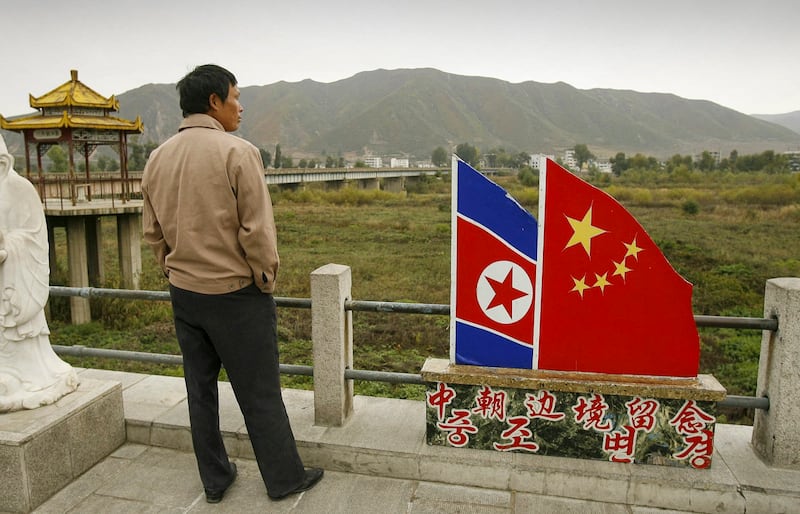North Korean trading companies have been contacting factories and companies in China about hiring more North Korean workers as Pyongyang seeks to bring in more foreign currency for its struggling economy, two sources told Radio Free Asia.
“North Korean trading companies are scrambling right now to find Chinese business partners,” said a source from China’s Jilin province who requested anonymity for personal safety.
“A North Korean trading company official whom I have known for several years asked me in early April to find a Chinese company willing to hire North Korean workers,” she said. “In mid-April, I received a similar request from a North Korean expatriate.”
The effort is part of the cash-strapped North Korean government’s drive to maintain or expand sources of foreign income. International sanctions, meant to deprive Pyongyang of cash and resources that could be funneled into its nuclear and missile programs, mandate that all North Korean workers were supposed to have returned home by the end of 2019.
But the COVID-19 pandemic prompted North Korea to close its borders, stranding its overseas workers beyond the deadline.
North Korean workers living in China have begun to trickle home in recent years, but most of them remain in China and need to keep working to earn cash for the government, which takes the lion's share of their salaries.
During the pandemic, it was harder to find work for stranded North Korean workers, but now things are opening up and Pyongyang wants them to start generating income again.
It is therefore trying to send new workers to China – likely on student or vocational training visas to skirt sanctions -– to replace the ones who have returned. At the same time it wants work for the ones already there.
Clothing, seafood, construction
Many of the women who go abroad work in restaurants or the clothing or seafood processing industries in China, while men often find construction jobs in Russia.
Some contracts between Chinese companies and North Korean employment agents have already been signed, the Jilin source said.
Last month, young workers were seen lining up outside two provincial hospitals to undergo health exams ahead of their departure, two provincial residents told RFA.

Sources have told Radio Free Asia that there are already tens of thousands of North Korean workers in Russia and China, with one source saying as recently as December that there were more than 100,000 in China alone.
But a report from the U.N. Security Council's Panel of Experts in March said that North Koreans working overseas earned about US$500 million in 40 countries for North Korea in 2023. The finding indicated that Pyongyang has the means to get around sanctions.
Dorm rooms and documents
In mid-May, a Chinese clothing company signed a contract with a North Korean company to hire 800 North Korean workers, a source in China’s Liaoning province who requested anonymity for personal safety told RFA.
The company in Liaoning’s Donggang City has already started preparing dormitory buildings and organizing the necessary documents for the workers, the Liaoning source said.
North Korean officials have requested that workers’ accommodations be situated near the factory, the Liaoning source said. A monthly salary of 3,000 Chinese yuan (US$413) will be paid in cash every month, he said.
North Koreans who work outside the country in restaurants, factories or in other jobs typically only keep a fraction of their earnings, with most of the money going to the Pyongyang government’s dispatching agency and to pay their housing and food expenses.
A Chinese clothes factory worker in Donggang typically earns at least 4,000 yuan (US$550).
“They seem satisfied hiring North Korean workers who can be paid less than Chinese workers and are better at their work,” the Liaoning source said.
The Jilin source said that the North Korean trading company official indicated that he had female workers in mind for seafood or clothing processing jobs.
“They want to take full charge of running a factory – not just the workers, but the management would also be all North Korean,” she said.
A resident of North Korea’s North Hamgyong Province, which borders China’s Jilin province, said he saw about 100 men and women lined up at the provincial hospital to undergo physical examinations last month. They were later notified that they would be sent to work for a company in Russia, he said.
“They were young workers selected to earn foreign currency for the party,” he said.
A resident of North Pyongan Province, which also borders China, said he also recently saw groups of young people lining up at a hospital for health exams.
Translated by Claire S. Lee. Edited by Matt Reed, Eugene Whong and Malcolm Foster.
